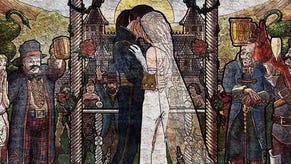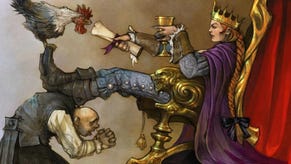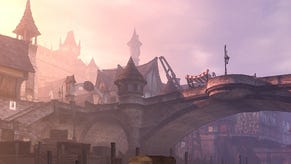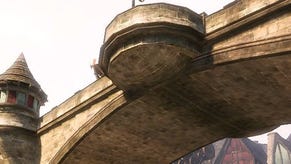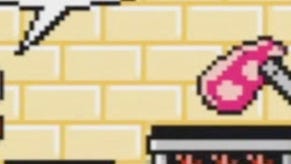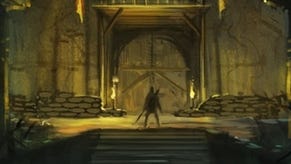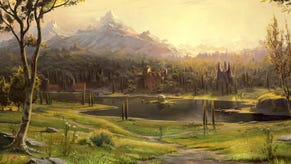Fable III
The difficult third Albion.
Albion is also one of the few game worlds that operate successfully in the gap between the comforting, precise clockwork of a Legend of Zelda, where everything leads somewhere and none of your time will be wasted, and the jazzy emergence of Fallout, a game which is whatever you make of it once you step away from the path.
Sure, you disobey Albion's breadcrumb trail first and foremost to make sure you aren't missing anything, but only part of you is concerned about goods and bounty; the rest of you is exploring, because Albion has riddles, vaults, unmarked pathways into icy caverns full of treasure and peril, enchanted creatures and surprising discoveries. It taps into your imagination. You're a child playing in the woods.
There's still a bit of RPG paraphernalia to contend with, but you can tell the developers long to do away with this sort of thing entirely. Cleese's walk-in wardrobe and inventory is a nice distraction from the monotony of menu screens, but the new Road to Rule, where you walk around upgrading weapons and abilities, doesn't really add anything. Fable III would work fine without an overt experience system; Fable IV will probably do exactly that.
It's all fun and games, then, but all the while you're plotting to overthrow your brother, Fable III is plotting to turn your world upside down. The section of the game where you go away, return and finally become king, and discover why your brother did so many horrible things - like encouraging Reaver, played to rakish perfection again by Stephen Fry, to employ child labour in Bowerstone Industrial - is as clever and compelling a change of pace and tone as Fable II's excellent Spire sequence.
The flashes of inspiration don't dry up once you hit the throne, either - you can still go off and explore, and there's Reaver's delicious devil's advocacy to look forward to whenever you're petitioned to do something noble - at one point he suggests turning a homeless shelter into a brothel to fill the exchequer. So there's still a lot of fun to be had before the curtain falls on another generation in Albion.
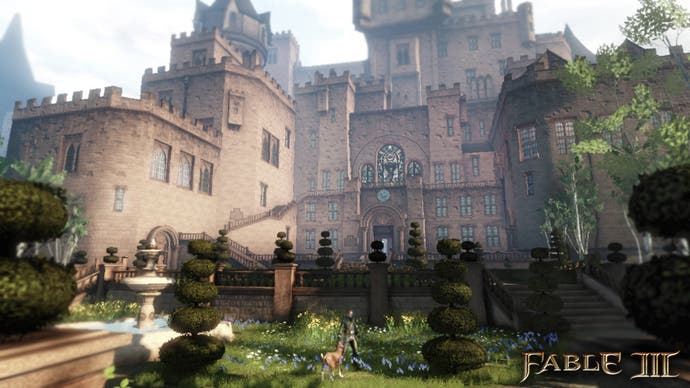
But once you have taken the throne, it turns out it isn't much fun breaking your promises or dooming your subjects, and it's very hard to find a credible alternative to these actions. Of course a monarch can't please everybody, but in trying to evolve beyond the pantomime dichotomy of good and evil elsewhere in Fable III, your time as king nearly breaks the game's internal consistency, and, coupled with a rather sad development at the end, means that for most players the journey will end on something of a double downer. Our advice? When you become king, take your time and drag things out for as long as possible.
Even if you are left slightly cold by events that follow, however, the chances are that you will be drawn back into Fable III before too long, whether it's because you want to play again with hindsight, or just because you want to explore. The irony of the breadcrumb trail, sometimes mocked for sparing you the difficulty of thinking, is that it's often harder to stay focused on it than it is to wander off and play. Everywhere you go you're tempted by the siren call of previously unnoticed footpaths, strange sights and eerie noises.
It may be messy and clunky from time to time along the way, but Fable III is only guilty of indulging its designers' whim at the expense of necessary polish, and in the royal scheme of things it's a crime you're happy to pardon. Many more RPGs will follow between now and whatever Lionhead does next with the series, but few if any will possess half as much heart, and most importantly, whatever else they have to offer, none will have Albion.

